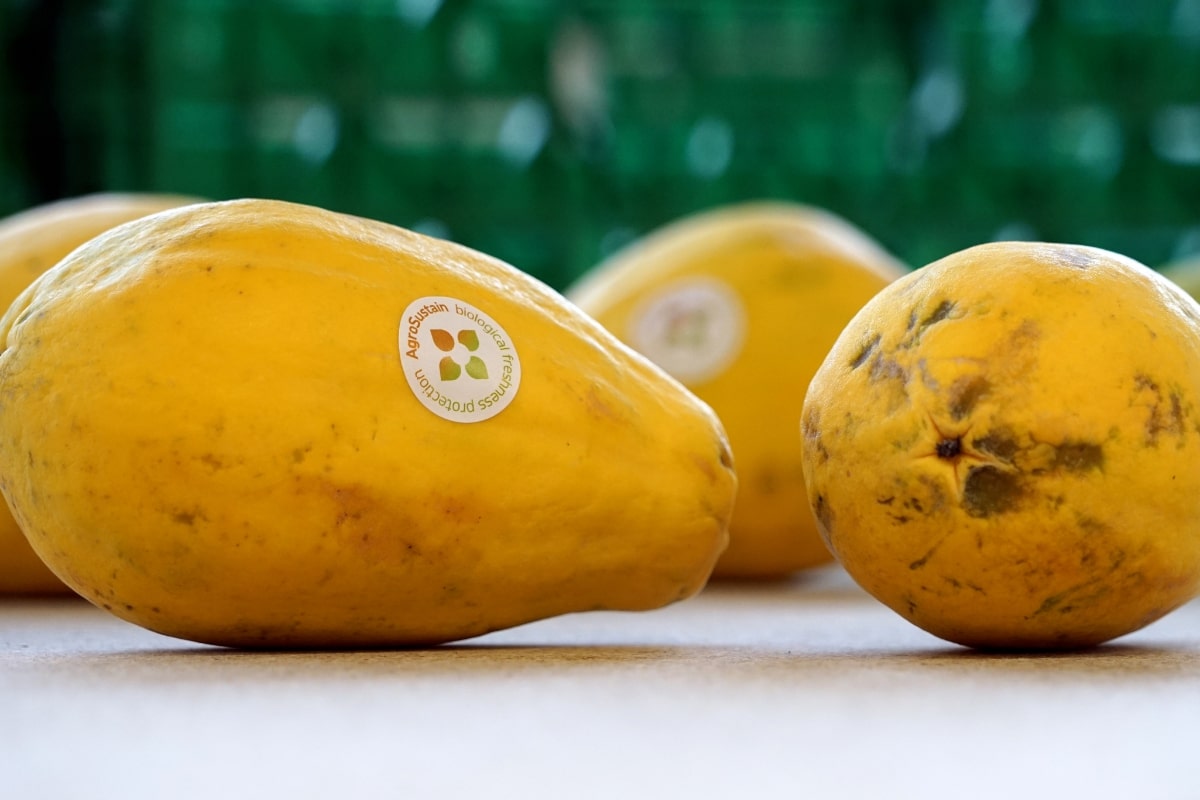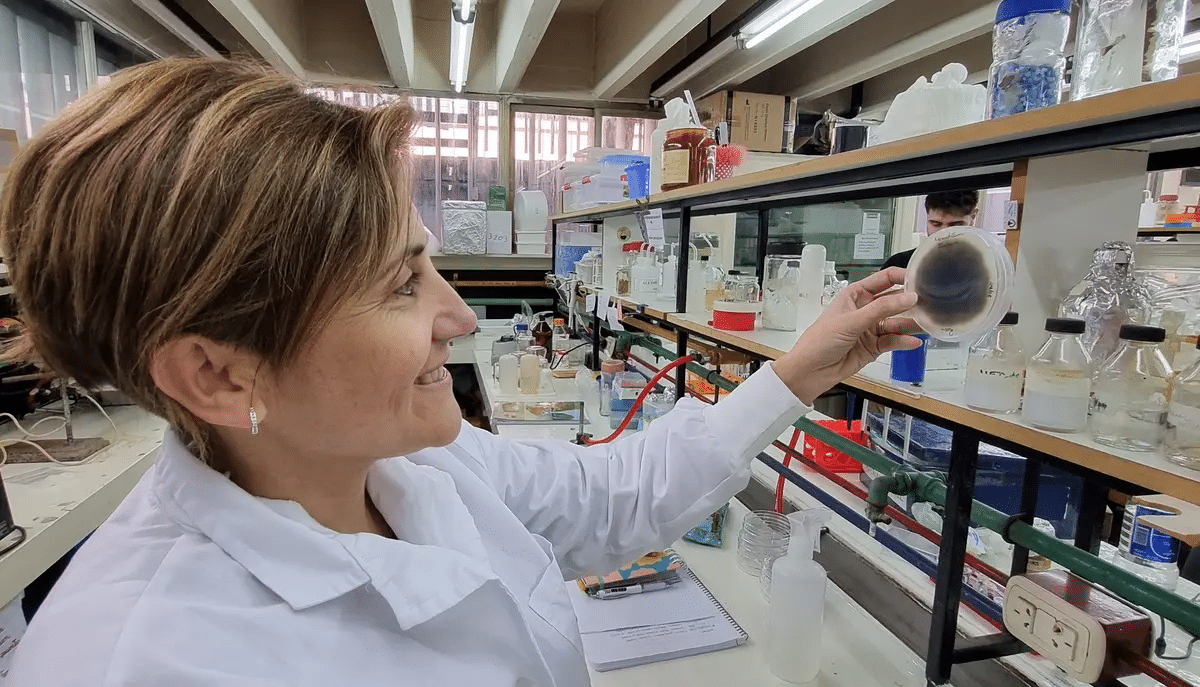Farming for the future: Meet 3 start-up alumni fusing innovation with agriculture
As climate change adds pressure to our already-fragile food systems, innovation can help create resiliency and boost our food security. EIT Climate-KIC is playing a role in this transition by scaling agritech solutions across the globe. We’ve scaled more than 400 food start-ups, including industry leaders like Ÿnsect, bringing everything from plant-based meat alternatives to vertical farming to market.
Let’s look at three influential alumni from our accelerator programmes in Europe, Africa and South America, each working in different ways to support farmers and drive sustainable food production.
AgroSustain (Switzerland)
Swiss-based AgroSustain is in the business of freshness. This science-based start-up prides itself on being a one-stop shop for natural plant protection, offering a range of products, such as edible coatings and biostimulants that keep fruits, flowers and vegetables fresher for longer. Its first commercial product, Afondo, is a coating made from vegetable oils and edible emulsifiers. Odorless, tasteless and invisible, AgroSustain’s natural products can extend the shelf life of crops by up to one month, reduce food waste up to 50 per cent, preserve taste and cut down on the need for plastic packaging. For farmers, this translates to the ability to deliver a consistent supply of high-quality crops and waste reduction throughout the supply chain.
What sets AgroSustain apart from other agritech ventures is its ongoing research used to identify and develop the most efficient natural treatments for pre- and post-harvest. Through meticulous product testing on more than 20 crops, they have secured seven patents and several trademarks. With a mission to protect our food systems, it’s clear why this climate start-up serves as a steward for sustainable food production and distribution.
AgroSustain participated in all three stages of the EIT Climate-KIC Accelerator programme from 2018-2020 and is now part of our investment portfolio of more than 100 climate companies. Since its launch, the team has grown to over ten specialists active in more than five countries with their own production facilities.
“Our vision is to extend crop freshness through natural and organic solutions. This means more benefits for food suppliers and for us as end consumers, with less waste in between,” says Olga Dubey, CEO and Co-founder of AgroSustain.

Agrosustain’s biocoating product applied to crops.
Coastal Biotech Ltd. (Tanzania)
Zanzibar, an island off the coast of Tanzania, is a leading producer of seaweed in Africa. In fact, it comprises more than 90 per cent of the country’s marine exports. However, the most common and older seaweed varieties are less resistant to climate change and pests, which lowers their quality.
Coastal Biotech Ltd has a solution. This start-up from the Adaptation & Resilience ClimAccelerator in Tanzania is developing stronger, more resilient seaweed strains. They collaborate with local communities, Green Collab in Portugal, Technical University in Munich (TUM), and the Ministry of the Blue Economy in Zanzibar to identify more efficient ways of cultivating seaweed farms. This has led to better yields and higher quality, which is crucial for the thousands of small-scale farmers in Zanzibar and neighboring Pemba who rely on seaweed farming for their livelihoods.
With a focus on research and innovation, they transform this renewable marine resource into premium agricultural products for animals and plants that help improve soil health, sequester carbon, reduce chemical inputs and promotes sustainable farming, all whilst having a net-zero approach and being 100 per cent organic. They also support local farmers—primarily women—by providing a steady source of income through the purchase of seaweed at above-market prices.
“By aligning our innovations with the needs of sustainable farmers, Coastal Biotech not only enhances agricultural productivity but also promotes practices that benefit both the environment and rural communities. This creates a pathway for farmers to thrive in a future driven by sustainability without the need for chemical inputs,” says Lavine Irvine, CEO Coastal Biotech.
Vexxel (Argentina)
Vexxel, an Argentine start-up led by CEO and Co-founder Mili Romano, is advancing innovation in sustainable agriculture with its biodegradable nano-capsules. These capsules release nutrients and protective agents precisely at the plant roots, guided by sensors that respond to real-time environmental cues. This targeted delivery approach combines the power of nature with advanced biotechnology, significantly reducing the need for synthetic fertilisers and pesticides. By optimising nutrient delivery and reducing resource waste, Vexxel supports healthier crop growth and minimises the carbon footprint of traditional farming methods.
Vexxel is currently introducing their technology in Mexico, launching a groundbreaking biodegradable product that combats plant fungal infections without the use of harmful chemicals. This expansion marks a significant step in their mission to transform agriculture through sustainable innovation.
The development of Vexxel’s biocapsules was significantly supported by the CATAL1.5°T accelerator programme in 2024, an initiative funded by the international Green Climate Fund (GCF) and the German Federal Ministry for Economic Cooperation and Development (BMZ), and implemented in partnership with EIT Climate-KIC. The programme has provided the start-up with valuable business insights and networking opportunities. This support has been crucial in refining Vexxel’s business strategies and enhancing its market readiness, emphasising the importance of sustainable practices in the global agricultural sector.
“If we do not change the way we are producing food today, soil will become increasingly less fertile, food will become progressively less nutritious, and with scarce resources, prices will also tend to rise. We believe this could lead to widening gaps in society,” Mili Romano explains.

Valeria Campos Bermudez, Vexxel’s CSO, looking at a strain for their biocapsules. © Vexxel
Food futures
This article is part of EIT Climate-KIC’s #FoodFutures campaign, which showcases how we are supporting key players across the food sector in transitioning to sustainable practices. Through this campaign, we capture real-world stories and lessons from our demonstration projects across Europe, including in Ireland, to illustrate what systemic change looks like on the ground.
Our goal is to highlight the transformative potential when farmers, policymakers, and industry players collaborate to address the food system crisis. By connecting the dots between sustainable farming models, bridging urban-rural divides, and supporting agritech innovators, we aim to accelerate the shift toward a healthier, more resilient food system for all.
